Las Vegas man charts path as first convicted felon hired by NDOC
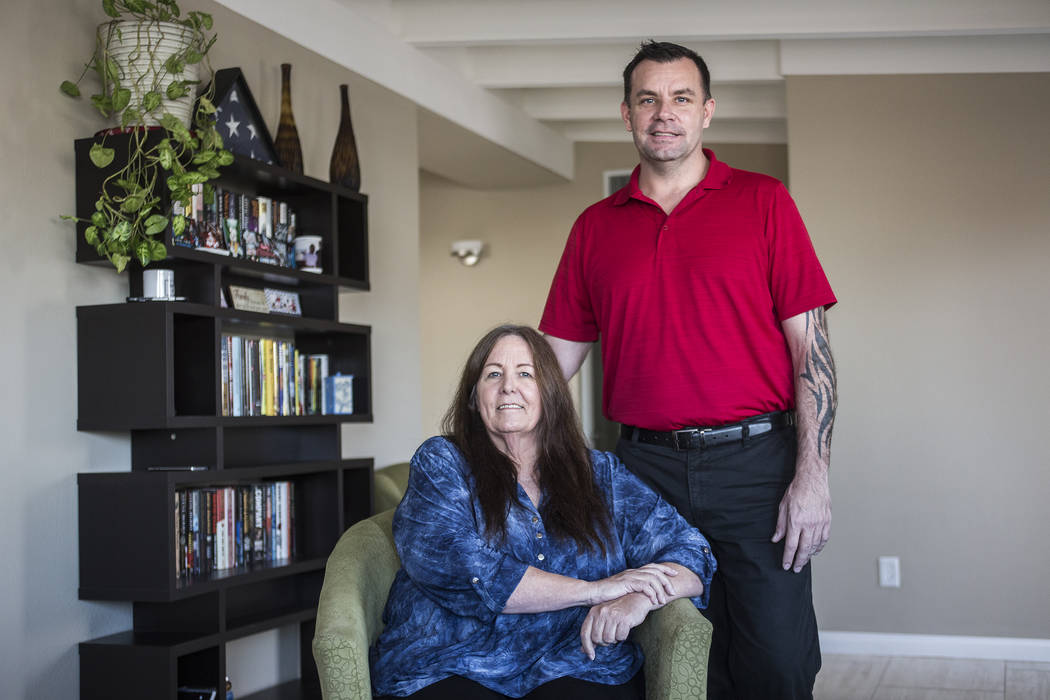
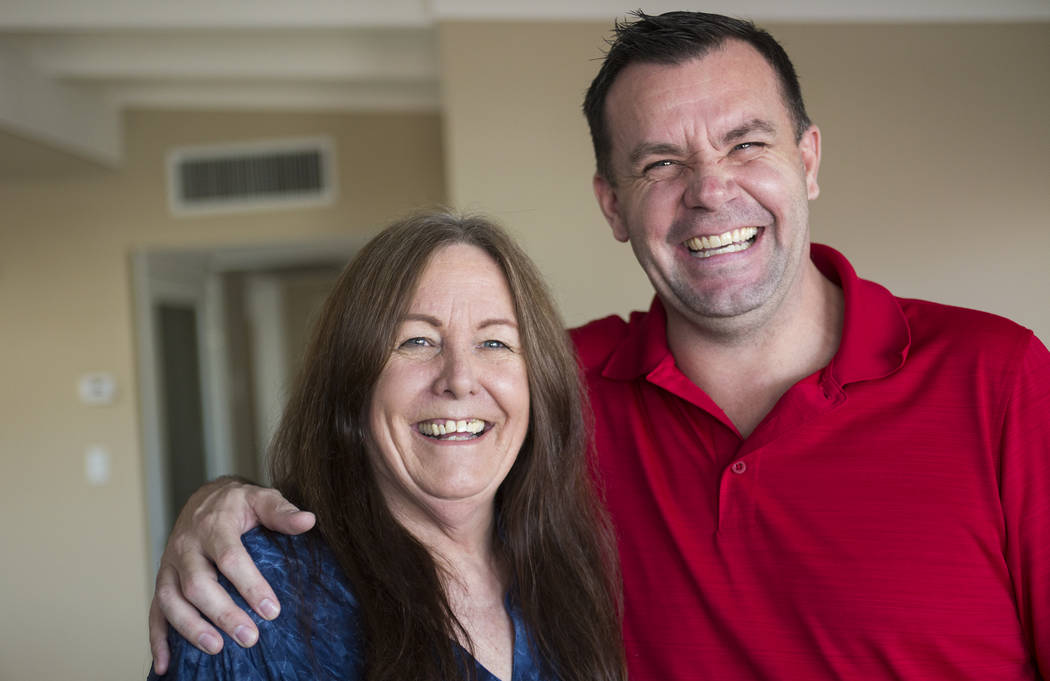
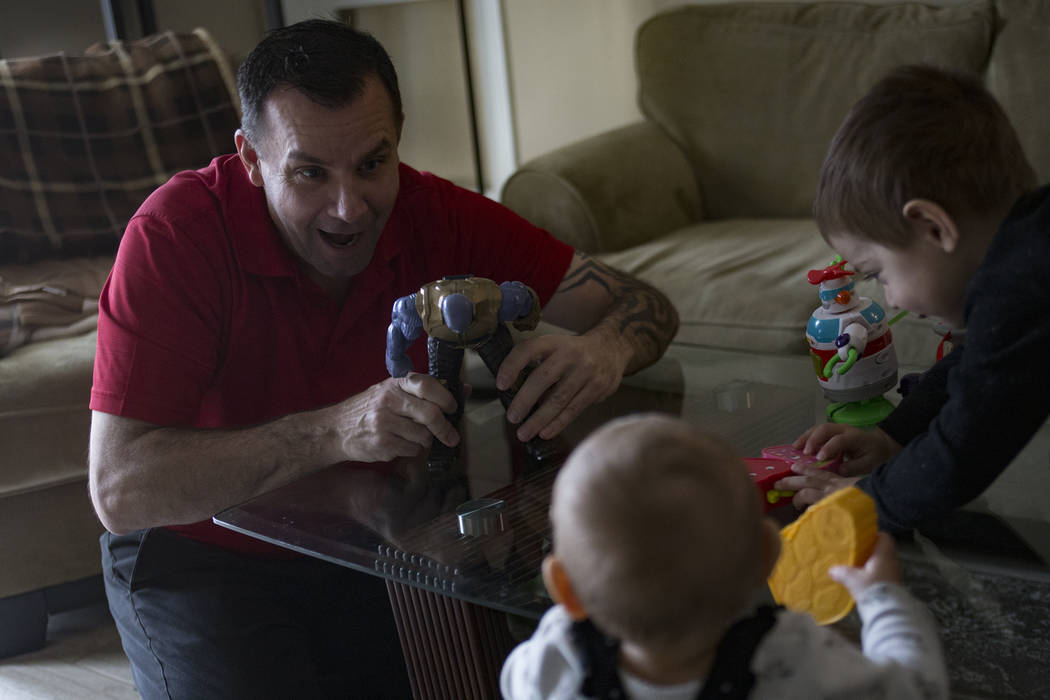
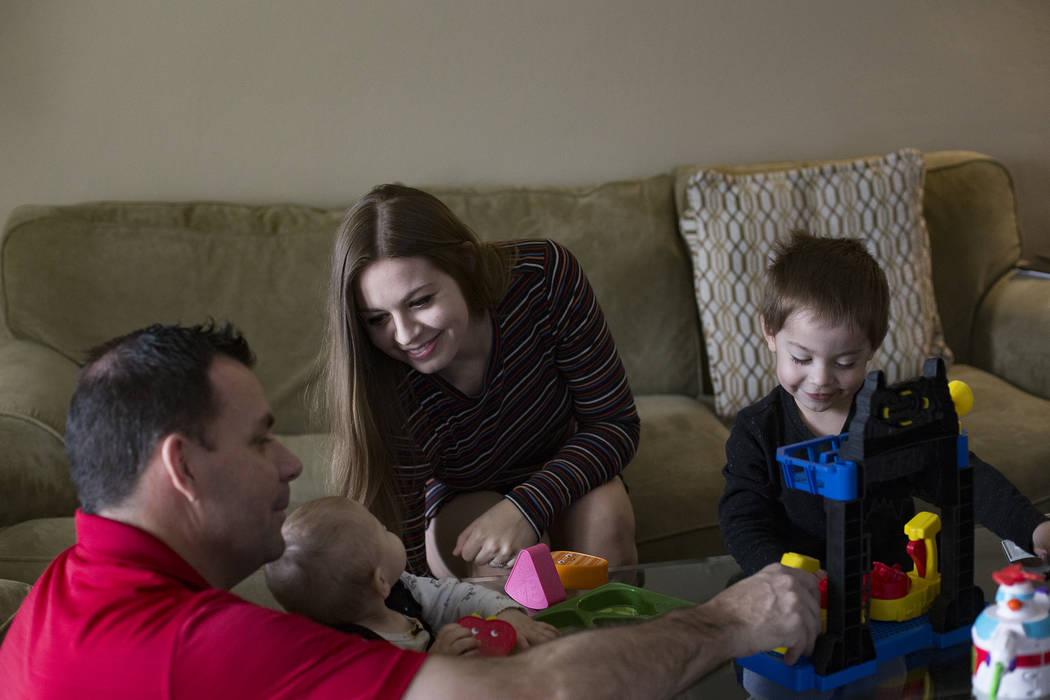
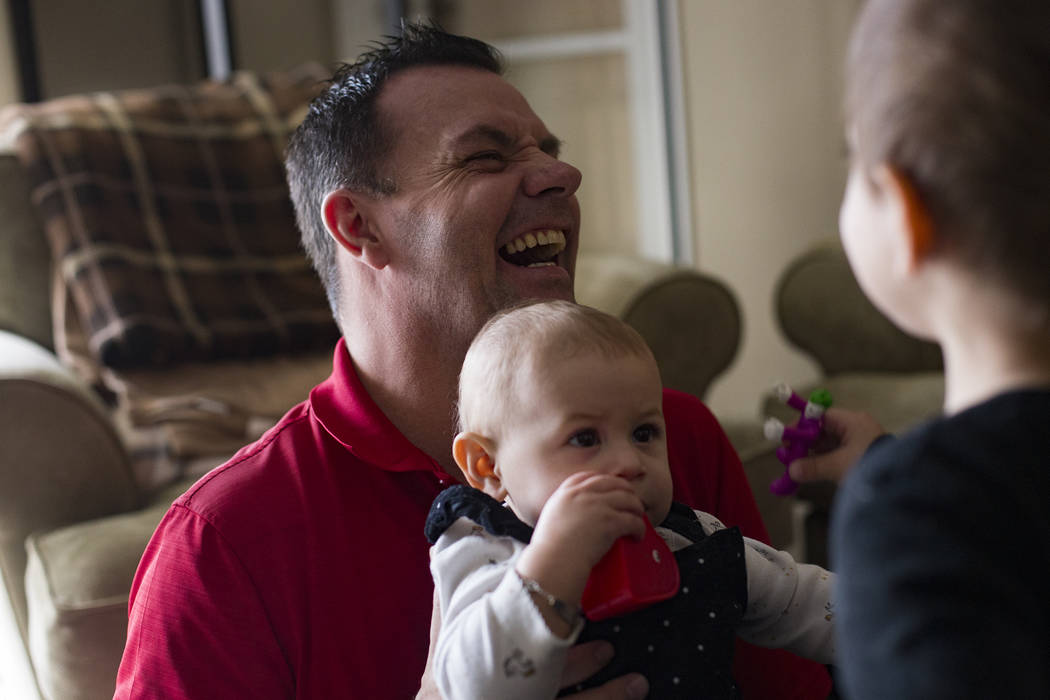
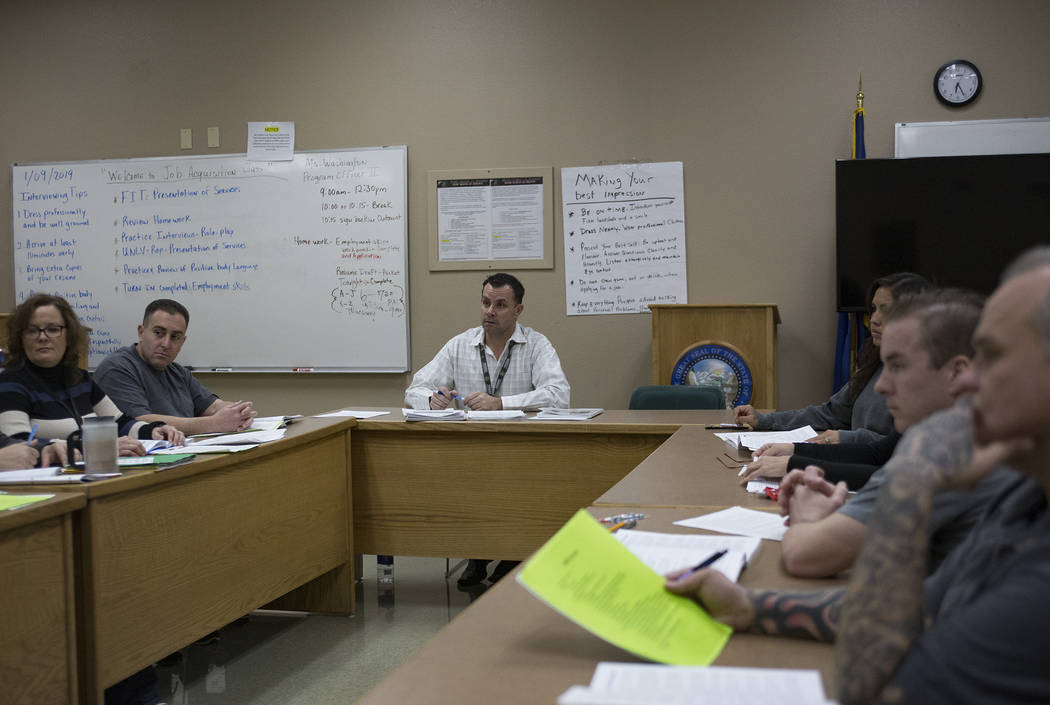
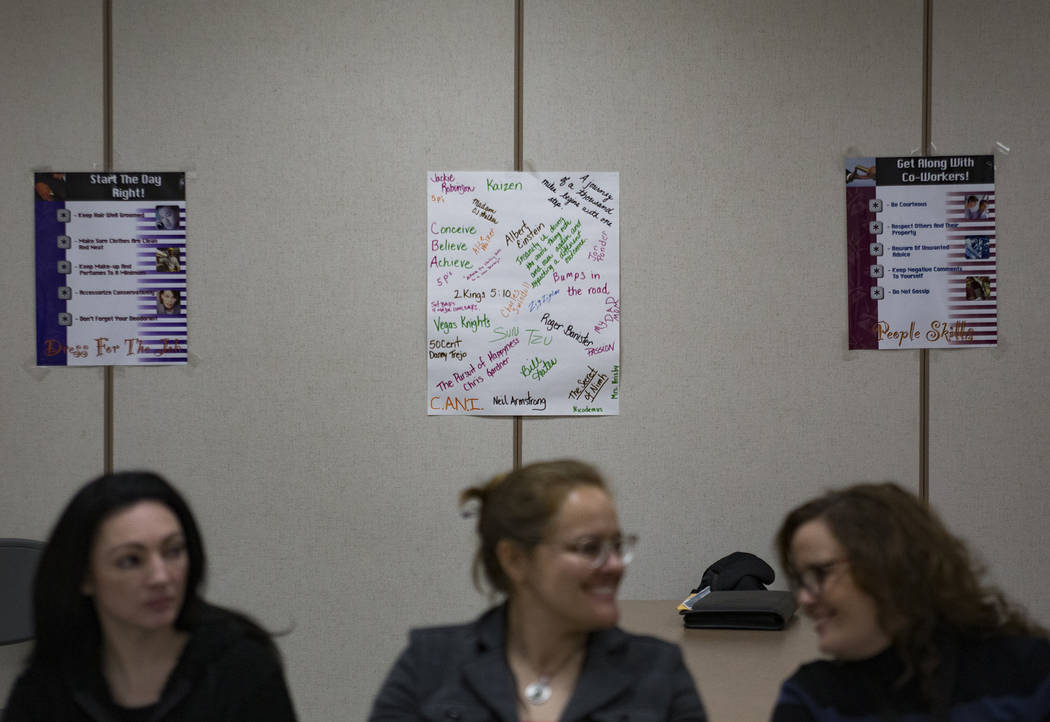
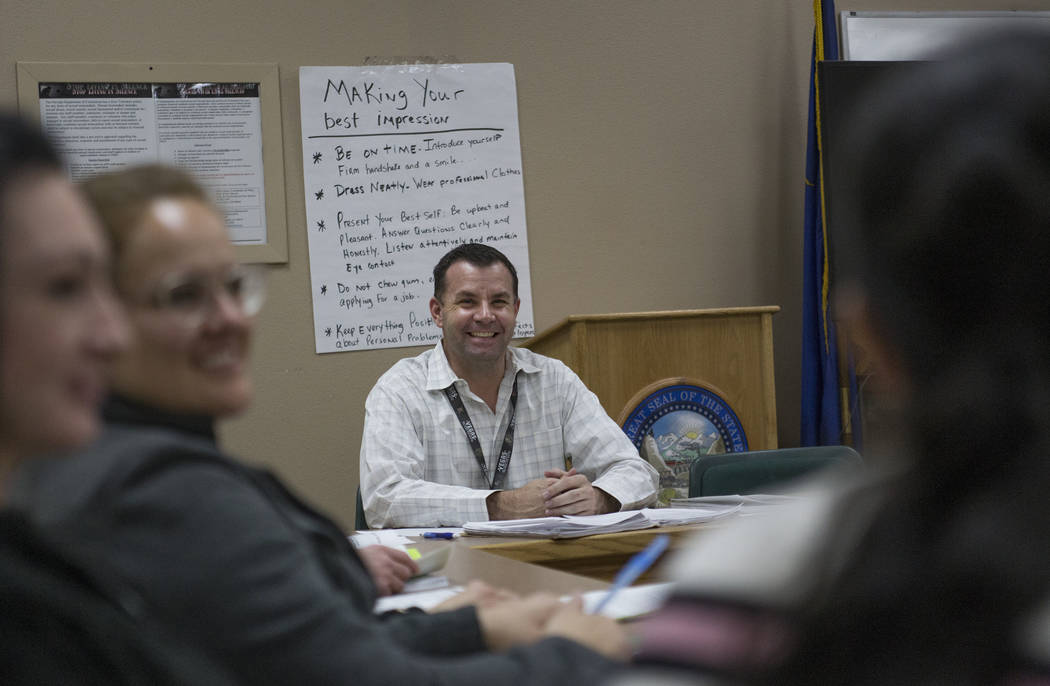
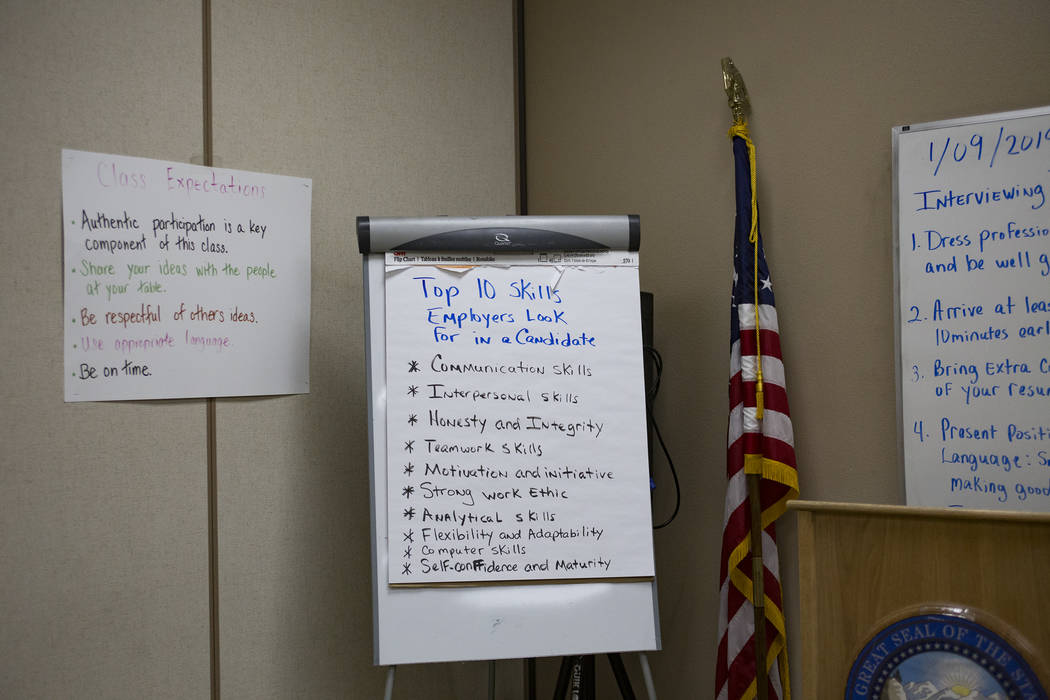
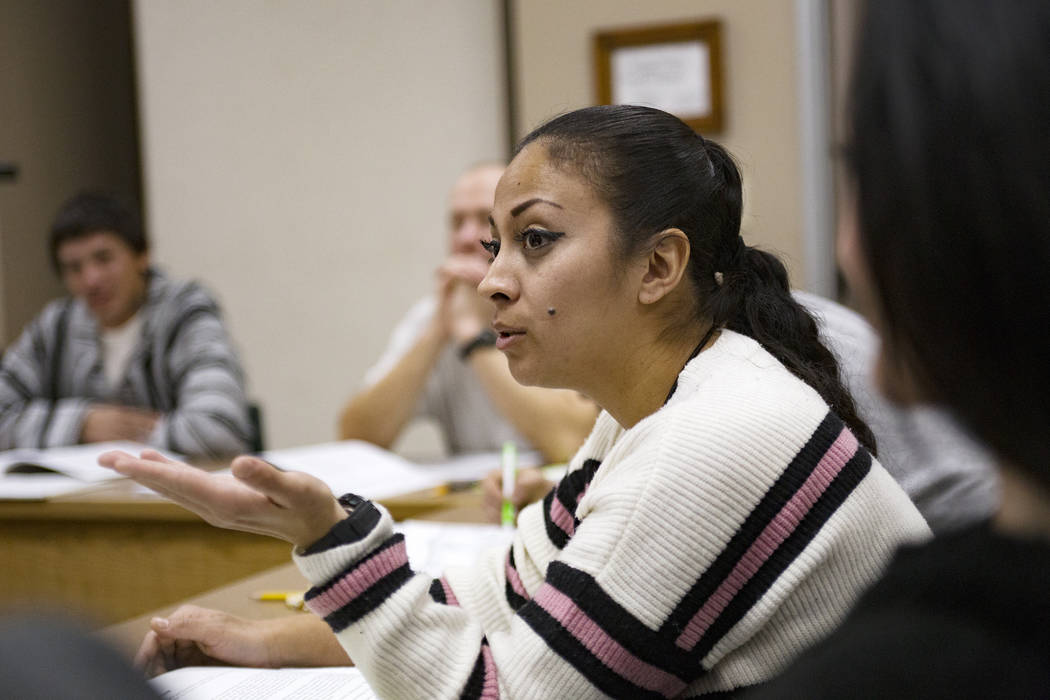
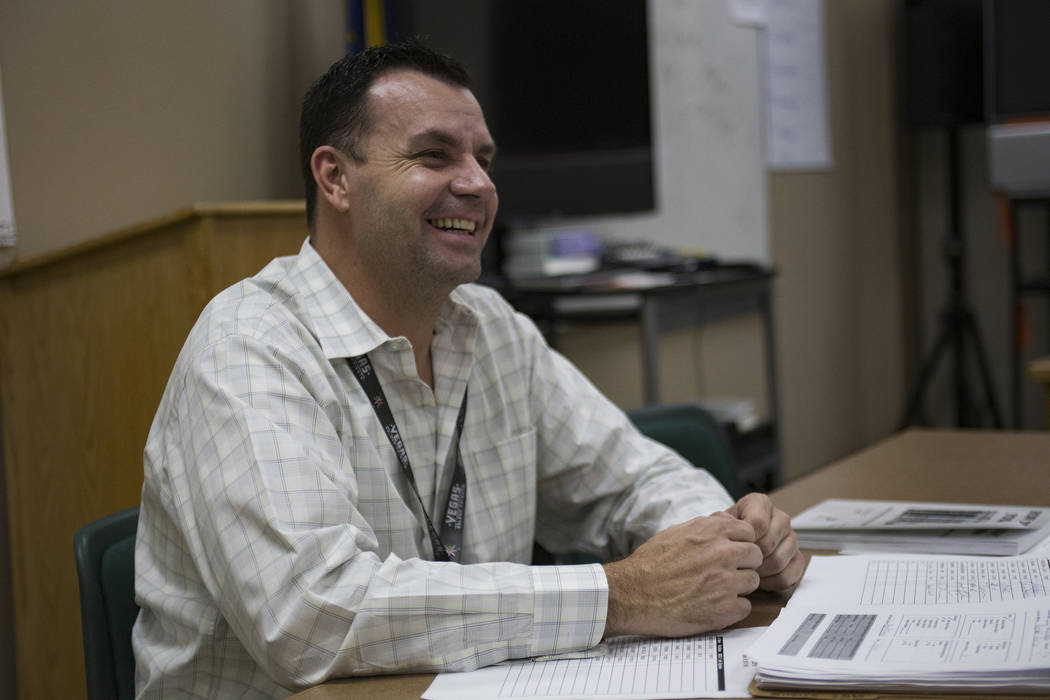
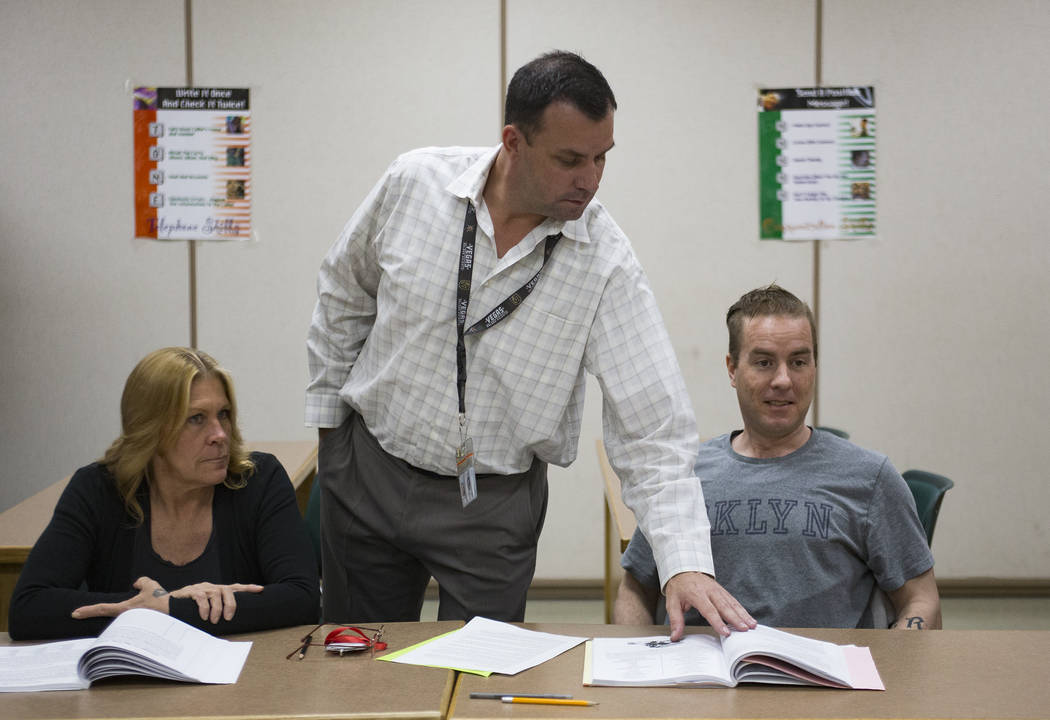


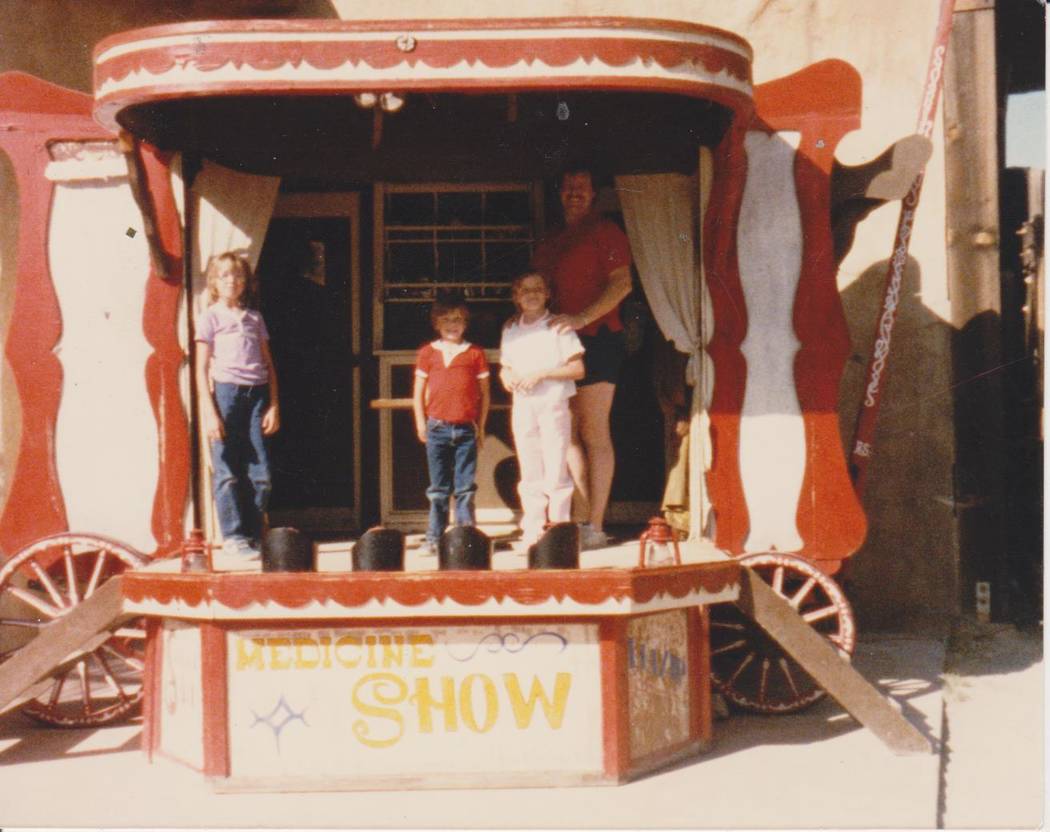
The letter came on June 20, an abnormally hot day in the valley, even by Las Vegas standards.
Michael Russell, 39, had been out of prison and sober for about four years. In that time, he had graduated from Hope for Prisoners, had earned an associate degree and was working as a licensed drug and alcohol counselor for Freedom House Sober Living, a transitional housing center.
Standing in the airy living room of his newly remodeled ranch-style home that scorching day, Russell, who has a large tattoo that snakes down his left arm, remembers hesitating before unfolding the letter.
His mother, holding her breath, watched from behind.
“Dear Mr. Russell:
Congratulations, you have been selected for appointment as a Program Officer 1 with the Nevada Department of Corrections Re-Entry Department,” the letter stated, in part.
Russell said nothing and then dropped to his knees. He was sobbing and gasping for air.
His past makes such an outcome seem nearly unthinkable. Russell had completed three stints in California and Nevada prisons before he was 35, unaware that later in life he’d make history as the first felon to be employed with the state Department of Corrections.
Jill Drysdale joined him on the soft rug and finished reading the letter aloud to her only son — the son she had never given up on, no matter how many times he took money from her purse or how long he’d gone in the past without contacting her.
“I loved him when he was high. I loved him when he was doing stupid stuff. I loved him when he was coming down. I loved him when he was committing crimes,” she said this month, curled up on a brown sectional couch in the living room where they’d opened the letter together more than half a year ago. “I love my son. There’s no changing that. I just knew I had to be there for him all the time.”
Russell wasn’t even old enough to buy a drink legally the first time he was arrested, but the trouble really began years earlier, on the night of Dec. 18, 1993. He was 15.
He remembers everything about that night. How his palms hadn’t stopped sweating since he’d picked up the clunky house phone to dial 911 and how he’d wiped them against his shirt as he paced in front of his family’s small, three-bedroom apartment waiting for help.
Russell could hear his mom inside begging his dad to wake up. His father’s face had turned an alarming shade of blue.
No one could have predicted the impact Kevin Russell’s death at 39 would have on his son, whom he had raised as his own since he was 2, even insisting that the two share his last name.
“To me, it was an amazing thing that a man who wasn’t my biological father was willing to treat me as his own,” Russell said in an interview this month.
Russell spent almost every day that followed, until 2014, in some sort of a daze, searching, at almost any cost, for the peace that washed over him when he was high on methamphetamine.
‘History in the making’
Now the same age as his father when he died, Russell works full time at Casa Grande Transitional Housing, a facility that houses nonviolent, non-sex-crime inmates who are within 18 months of parole eligibility.
There, he teaches two classes to inmates — some with whom he had been incarcerated at High Desert State Prison in Indian Springs during his most recent stint, in 2014, on a parole violation. He had tested positive in multiple drug screenings.
“I never thought in a million years that I would ever want to work in a prison,” Russell said this month, sitting in his office at Casa Grande. “There are days that I come to work and I think, ‘Is this a dream?’ ”
His boss, Elizabeth Dixon-Coleman, said Russell’s employment brings a long-needed change to the department’s culture.
“It’s history in the making,” she said. “We’re working toward being more rehabilitative and giving people more opportunities.”
That change started with Russell, who came to NDOC in 2017, first as a volunteer and then a contract worker for just under half a year before he was hired full time.
“He was willing to say, ‘I’ll do whatever it takes to be the first one, to set the (precedent) and to be that forerunner to help charge change, even though I’m putting myself out there,’ ” Dixon-Coleman said.
Russell remains on probation as the attorney’s general office reviews changes to state agency statutes that “talk about cautionary concerns hiring felons, especially because we’re in law enforcement,” according to Dixon-Coleman.
“There were several statutes within NDOC, as well as law enforcement compliance and operational procedures, that are now under review for specific wording, or to see if we need to go forward with any legislative action to help ensure that everyone has an equal opportunity for employment in the future while still preserving confidentiality in a way to protect everyone,” she said.
Sharing lessons learned
There are days still, Russell said, that his insecurities overwhelm him. He wonders if it all will be ripped away from him — his fulfilling career, health insurance and a pension.
But teaching chips away at those insecurities. When Russell gets in front of a classroom, he stands a little taller and makes direct eye contact with students.
On a recent Wednesday evening, Russell hushed the 12 inmates chatting in his classroom at Casa Grande. The desks were set up in a rectangular shape, so the inmates and Russell were facing each other.
That night, Russell was teaching Moral Recognition Therapy, a 16-step behavioral modification course. He credits this program as the catalyst for change in his life during his last prison stint.
“Who’s ready to present?” Russell announced, looking around the room.
Joseph DeVera, wearing a matching set of heather-gray sweats, raised his hand.
“Step 2 is all about trust,” DeVera read from his workbook.
But while presenting his homework, he caught an error in his work. He tilted his head and squinted.
“I was going to try to spin this, but I can’t,” DeVera admitted.
The other inmates came to his defense, urging Russell to allow DeVera to move on to Step 3.
But DeVera shook his head, knowing Russell would make him try again the next week.
“If I let you slide on that, what else will you slide on in life?” Russell asked, a smile rising from the corners of his mouth.
If his dad could see him now, he’d be so proud. Russell’s sure of it.
Contact Rio Lacanlale at rlacanlale@reviewjournal.com or 702-383-0381. Follow @riolacanlale on Twitter.













